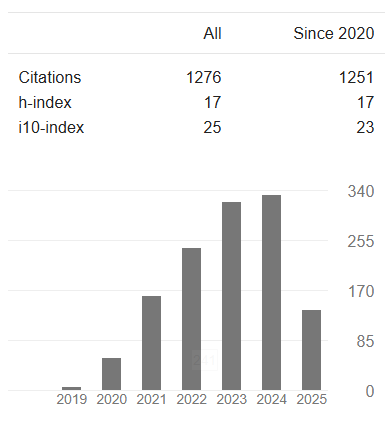Islamic Social Environment Perspective and Intention Decisions of Accounting Students at Islamic Financial Institutions
DOI:
https://doi.org/10.14421/EkBis.2021.5.2.1417Keywords:
Islamic Social Environment, Theory of Planned Behaviour (TPB), Decision Intention, Structural Equation Modeling (SEM)Abstract
The aim of this research is to test the Islamic social environment on interest decisions and tests from a psychologically behavioural perspective rooted in the theory of planned behaviour (TPB) in individual interest decisions. The research method uses structural equation modeling (SEM) through SmartPLS 3.0 software, with a sample of 157 accounting students at state universities (PTN), state Islamic religious colleges (PTKIN) and private universities (PTS) located in Central Java, West Java and East Java, Yogyakarta. The test results showed that the Islamic social environment significantly affects interest decisions, theory of planned behaviour (TPB) which has dimensions of attitudes, subjective norms and perceptions of behavioural control have a significant effect on islamic social environment and interest decisions. Meanwhile, attitude and subjective norms point to a significant direction toward interest decisions through islamic social environments, while perceptions of behavioural control are insignificant over decisionsDownloads
References
Ajzen, I. (1991). The theory of planned behavior. Organizational Behavior and Human Decision Processes, 50(2), 179–211. https://doi.org/https://doi.org/10.1016/0749- 5978(91)90020-T
Ajzen, I. (2005). Atitudes, Personality and Behavior. In Mapping social psychology.
Ajzen, I., & Fishbein, M. (2005). The Influence of Attitudes on Behavior. In The handbook of attitudes. (pp. 173–221). Lawrence Erlbaum Associates Publishers.
Arif, M. N. R. Al. (2012). Lembaga keuangan syariah, suatu kajian teoretis praktis.
Pustaka Setia: Bandung.
Dwi Astari, L. (2019). Pengaruh Motivasi, Religiusitas dan Lingkungan Sosial Terhadap Minat Bertransaksi Di Perbankan Syariah. Universitas Islam Negeri Raden Intan Lampung.
Ghozali, I., & Latan, H. (2015). Partial least squares konsep, teknik dan aplikasi menggunakan program SmartPLS 3.0 untuk penelitian empiris (2nd ed.). Badan Penerbit Universitas Diponegoro.
Hair, J. F., Ringle, C. M., & Sarstedt, M. (2011). PLS-SEM: Indeed a silver bullet.
Journal of Marketing Theory and Practice, 19(2), 139–152. https://doi.org/10.2753/MTP1069-6679190202
Hair, J. F., Sarstedt, M., Ringle, C. M., & Mena, J. A. (2012). An assessment of the use of partial least squares structural equation modeling in marketing research. Journal of the Academy of Marketing Science, 40(3), 414–433. https://doi.org/10.1007/s11747-011-0261-6
Handoko, T. N., & Dharmmesta, B. S. (2011). Manajemen pemasaran analisi perilaku konsumen. BPFE.
Hastharita, R. (2020). Faktor-faktor yang memengaruhi keputusan nasabah memilih jasa bank syariah di makassar. Jurnal Hukum Ekonimi Syariah, 4(2), 67–80.
Irawan, D., Widhi N, P., Sagiman, R., & Nugroho, S. (2020). Pengaruh Theory Planned Behavior terhadap Keputusan Menabung di Rekening Syariah. Indonesian Business Review, 3(1), 1–14. https://doi.org/10.21632/ibr.3.1.1-14
Khairunnisa, I. A., & Cahyono, H. (2020). Hubungan Pengetahuan, Religiusitas, dan Lingkungan Sosial Terhadap Minat Menabung Menggunakan Bank Syariah. Jurnal Ekonomika Dan Bisnis Islam, 3, 1–14.
Kusnandar, V. B. (2019). Indonesia, Negara dengan Penduduk Muslim Terbesar Dunia. https://databoks.katadata.co.id/datapublish/2019/09/25/indonesia-negara-dengan- penduduk-muslim-terbesar-dunia
Latan, H., & Ghozali, I. (2012). Partial least squares : konsep, teknik dan aplikasi SmartPLS 2.0 M3 untuk penelitian empiris. Badan Penerbit Universitas Diponegoro.
Lucas, D. B., & Britt, S. H. (1950). Advertising psychology and research: An introductory book. In Advertising psychology and research: An introductory book. McGraw-Hill Book Company. https://doi.org/10.1037/13239-000
Maghfiroh, S. (2018). Pengaruh Religiusitas, Pendapatan, dan Lingkungan Sosial terhadap Minat Menabung di Bank Syariah pada Santri Pondok Pesantren Asma’ Amanina (Vol. 53, Issue 9).
Ningtyas, M. N., & Istiqomah, D. F. (2021). Perilaku Investasi sebagai penerapan gaya hidup halal masyarakat Indonesia: tinjauan Theory of Planned Behavior. Jurnal
Ekonomi Modernisasi, 17, 158–172.
Purwanto., M. N. (2009). Ilmu Pendidikan Teoritis Dan Praktis (1st ed.). Remaja Rosdakarya.
Ramdhani, N. (2016). Penyusunan Alat Pengukur Berbasis Theory of Planned Behavior.
Buletin Psikologi, 19(2), 55–69. https://doi.org/10.22146/bpsi.11557
Raza, S. A., Ahmed, R., Ali, M., & Qureshi, M. A. (2020). Influential factors of Islamic insurance adoption: an extension of theory of planned behavior. Journal of Islamic Marketing, 11(6), 1497–1515. https://doi.org/10.1108/JIMA-03-2019-0047
Reni, A., & Ahmad, N. H. (2016). Application of Theory Reasoned Action in Intention To Use Islamic Banking in Indonesia. Al-Iqtishad: Journal of Islamic Economics, 8(1), 137–148. https://doi.org/10.15408/aiq.v8i1.2513
Salisa, N. R. (2021). Faktor yang Mempengaruhi Minat Investasi di Pasar Modal: Pendekatan Theory of Planned Behaviour (TPB). Jurnal Akuntansi Indonesia, 9(2), 182. https://doi.org/10.30659/jai.9.2.182-194
Simanihuruk, P. (2020). Pengaruh Attitude, Subjektif norms dan Kontrol Perilaku Yang Dirasakan Terhadap Minat Berwirausaha Dengan Pendekatan Theory Of Planned Behaviour. Jurnal Manajemen Dan Bisnis (JMB), 20, 119–140. https://doi.org/10.54367/jmb.v20i1.693.
Sudarsono, H., Nugrohowati, R. N. I., & Tumewang, Y. K. (2020). The Effect of Covid- 19 Pandemic on the Adoption of Internet Banking in Indonesia: Islamic Bank and Conventional Bank. Journal of Asian Finance, Economics and Business, 7(11), 789–800. https://doi.org/10.13106/jafeb.2020.vol7.no11.789
Suprapto, S. W. (2017). Hubungan Attitude, Norma Subjektif, Perceived control behaviour Dan Pengetahuan Terhadap Intensi Pelaporan Kecelakaan Kerja Perawat Rawat Inap Tulip Dan Melati Di Rumah Sakit X Kota Bekasi Tahun 2016.
Wahyuni, S. (2012). Moslem Community Behavior in The Conduct of Islamic Bank: The Moderation Role of Knowledge and Pricing. Procedia - Social and Behavioral Sciences, 57, 290–298. https://doi.org/10.1016/j.sbspro.2012.09.1188
Wahyuning, M. (2021). Analysis of the Influence of Knowledge and Social Environment As Mediators in Religiosity Relationships and Interests in Saving Students in Sharia Banking. Jurnal Perbankan Syariah Nisbah, 7(1), 5–48.
Yusfiarto, R., Setiawan, A., & Nugraha, S. S. (2020). Literacy and Intention to Pay Zakat : A Theory Planned Behavior View Evidence from Indonesian Muzakki. International Journal of Zakat, 5(1), 15–27.
Zuriatul Casvi, F. (2019). Pengaruh pengetahuan, lingkungan sosial, dan lokasi bank syariah terhadap minat menabung santri di bank syariah.





























 This work is licensed under a
This work is licensed under a 